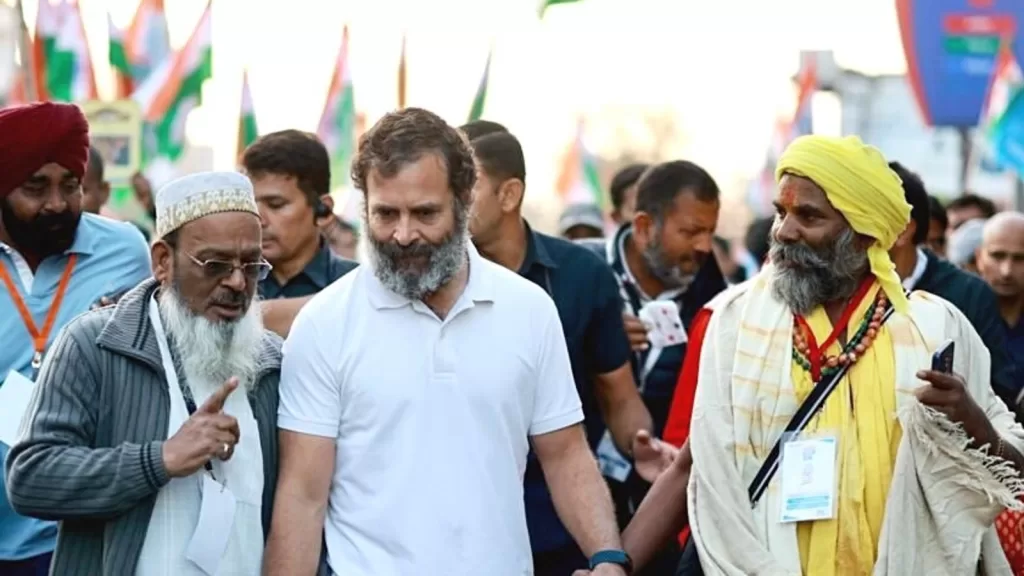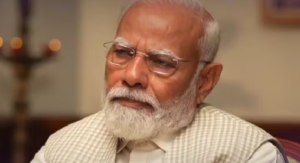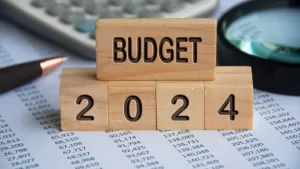When More Voters in UP Prefer Rahul Gandhi to Modi as PM, It is Clear the Ground Has Shifted
Badri Raina
How the unimaginable becomes a hard fact.
A recent post-poll survey done by the reputed CSDS in the game-changing Uttar Pradesh, shows, among other things, that David has now surpassed Goliath in the prime-ministerial choice of UP-ites.
The survey results show that while 32 per cent of the respondents rooted for Modi, 36 per cent wished to see Rahul Gandhi as the executive head of the republic.
If the loss in the temple-town of Ayodhya, and Modi’s humiliating scrapping -through in Varanasi have been clear signs of Lord Ram’s chagrin at the businessification of his identity, pushing the Pran-Pratishtha-doing Modi four percentage points below his chief nemesis, namely, the erstwhile ‘Pappu,’ Rahul, must surely rank as the ultimate coup d’ grace administered by the right-wing’s very own Ram.
On a mundane level, if this new finding is testament to Modi’s fall from common approval, all chicaneries notwithstanding, it is simultaneously a tribute to the persistent application of mind and body that has characterised Rahul Gandhi’s politics, especially over the last grueling five years.
Even more subtly, the dethroning of Modi from the common man’s heart has come from a complete disenchantment with his elaborately constructed sophistries and fake day-dreams sought to be sold as performance and caring.
Rahul’s rise has been the story of a dogged young idealist reaping the fruit of his refusal to deviate from the truth of things. Having suffered derision for long, from friend and foe alike, for his ostensible lack of tact in addressing the immediate moment, Rahul’s exemplary persistence in articulating issues that bear on the macro-ideological depths of what has been going wrong with India have palpably found space in the popular psyche of citizens, both among the rural masses and considerable sections of young urban Indians.
In this protracted and often frustrating process, the patchwork and rude cleverness of the Modi-led right-wing have finally come to be found out; and the realisation, even if late in coming, promises to return the soul of the republic to matters of substance and egalitarian probity.
An important part of Rahul’s learning over the taxing years has been that listening is of greater value than blabbing, and a transparently visible honesty of purpose and sharing are the most rewarding attributes of a democratic personality.
As everybody could see, Rahul’s interactions–and they have been many–with the media have contrasted starkly with Modi’s desire to be heard in perpetuity and not to be questioned, even by crony journalists.
There is an aspect of Rahul’s persona that bears comment of a different kind.
Much like the writer, he has seemed most at home in opposing excesses rather than taking on the onus of authority. This will of course sound blasphemous to many who accuse him of being at bottom the chief lord and master of the grand old party.
There comes a time when protagonists in public spaces must need to assume the onus.
To that point, as of the present moment, it will not but seem a cop-out should Rahul refuse to occupy the position of the Leader of the Opposition in parliament.
Concomitantly, nothing may prepare a young leader as soundly for a larger onus than a tough grind in the legislature, where homework and articulation must come together to form a fulcrum of influence comparable with the office of the prime minister.
The nation will await Rahul Gandhi’s decision with interest.
This, now is a moment in the fraught history of the republic, especially over the last hurtfully brazen decade, when ordinary women and men who rejected appeals both to sectarian identity and claims of divine entitlement, opting for the common human need, will want to see if a new leadership emerges that is equipped to deliver that promise of common human need when in authority.
That reality makes the further shape of Rahul Gandhi’s career a matter of great national interest.
Caveat
Finally, a caveat that one hopes the young Gandhi will take in a positive spirit:
It may not have been politic to say what he said about a hypothetical Priyanka Gandhi Vadra vs Modi contest.
For someone whom the party worker holds in high esteem, and for good reason, given that he has had the most to do with the resurgence of the Congress organisation, the wiser thing to do may have been to laud candidate Ajai Rai for very nearly getting the better of the great Modi.
That Rahul Gandhi is now four percentage points ahead of the ‘world’s most popular leader’ in the all-important Uttar Pradesh suggests that he has crossed a watershed Rubicon.
The thing to do is to keep building on that merited advance.
(Badri Raina taught at Delhi University. Courtesy: The Wire, an Indian nonprofit news and opinion website. It was founded in 2015 by Siddharth Varadarajan, Sidharth Bhatia, and M. K. Venu.)
❈ ❈ ❈
The Radical Rahul Gandhi Nobody Expected
Meena Kandasamy
October 2021
When I first rushed to break the news to Cedric, my partner, that I was to meet Rahul Gandhi, he could barely conceal his disappointment. “The Congress is a bourgeois party,” he argued, “What have you got to do with them now?” Cedric is as left as they come – he’s a Trotskyist from Western Europe, an intensely-committed specimen from an endangered species. To gloat over the possibility of a face-to-face meeting with a leader of the Opposition was not something which left him impressed. “My friends are in jail, my friends’ parents are in jail,” I argued aware of the emotional note I was striking to counter his political claim, “and we have knocked on all doors. This man can help.” I was referring to the Bhima-Koregaon case where 16 of the nation’s bravest activists and intellectuals were jailed under charges of terrorism on a host of trumped-up charges.
Jignesh Mevani, an elected legislator and powerful critic of Narendra Modi from his home state of Gujarat, had arranged this meeting. Jignesh and I had collaborated often in our own way in helping the campaign for their release – we co-wrote op-eds, we tweeted, we did interviews, we tried to get politicians to sign open letters. Meeting Rahul Gandhi was a natural progression in this struggle. A few days before our meeting, an explosive report had come out in the international media: Arsenal Consulting, a tech forensics firm, had found that the electronic evidence used to implicate the activists had been planted on their systems remotely, several years prior to the cases being filed against them. If Rahul Gandhi was to raise this issue, alongside the issue of the Israeli spyware Pegasus being used by the government to snoop on activists, we believed that it would add momentum to the release campaign.
When I got ready to go and meet RaGa (as he’s called by his close circle), I felt caught in a swirl of emotions. I remember tying a blue Kota cotton sari, and as I folded the pleats neatly and tucked them into my skirt, my entire body jolted involuntarily. Touching my own stomach, the thought of my impending meeting with Rahul reminded me that the suicide bomber who killed his father had worn a belt bomb. Some Tamil woman somewhere got ready like this, I thought, and she took his life.
My conflicted emotions and trigger came from the memory that I had been brought up in a family where we were sympathetic to the militancy of the Tamil groups who were fighting for a separate homeland in Sri Lanka, and this included the Tamil Tigers (LTTE). In the light of the oppression that they faced, we supported their armed struggle; their violent tactics were rationalised as a necessary part of a liberation struggle.
I was not yet seven years old in 1991, the summer Rajiv Gandhi was assassinated. It was my first encounter with death, the death of someone whose face we recognised. The coverage in the newspapers left nothing to imagination – pictures of dismembered body parts, the site of the bomb blast, everything was shown in the greatest detail. I read everything I could lay my hands on, and I simultaneously stopped eating altogether. When my mother would try to feed me, I would violently throw up. This went on for two weeks, and she started taking me to doctors. A paediatrician in the campus hospital told her to put me on a liquid diet, not force me into eating, and said to her that I was emotionally shocked – that as a child I could not come to terms with the horror of that death.
Even as a seven-year-old, my heart broke for Rahul, his sister, his mother. They did not deserve any of this, their innocence was pristine. The world was morbidly unjust. And that day, dressed in that soft floral sari, I was going to knock on his door, seeking his help in securing justice.
When we were ushered to his visitor’s room, I was made to sit to his right. I thought I would be summarily dismissed in five minutes – as is common among politicians in India – but I spent more than a hour watching him work. He listened to us patiently, we both disagreed (quite loudly), he spoke to other visitors, he made consultations with his party men. He was kind, extremely down-to-earth, and keen to hear an alternative viewpoint.
When we were to leave, RaGa posed for pictures with us. We were both wearing face masks (it was the time of the pandemic), and someone standing nearby told him, “She is LTTE.” I froze and stood wide-eyed, Rahul smiled at me with such open eyes, and the tension diffused, disappeared.
● ●
September 2022
I was asked if I would join the first two days of the Bharat Jodo Yatra – Rahul Gandhi was to march from India’s southernmost city Kanyakumari all the way up to Kashmir, covering over 3,000 miles. I readily agreed. To keep pace with Rahul was nearly impossible, he almost seemed to sprint. I walked, and then climbed on to an OB van. If someone held out a hand, he would walk across to shake hands or carry a child – and his security cover would be in a tizzy, finding it hard to rush in time to offer him that blanket of protection. Watching him like that was extremely scary for me – he was spontaneous, he was fearless – and in my heart, I prayed that he would be safe, that nothing untoward would happen to him. It is difficult to be a critical observer when you are tainted by the maternal instinct – I wanted him to be alive first – his political project of unifying us as Indians could happen only if he was protected. When the marching stopped in the hot afternoon hours, he would meet interest groups of people. I lurked in a corner and watched three of those meetings – he met women activists, Dalit activists and environmental activists. When members of his team asked me if I would like to be introduced to him, I declined – the media in India was tainted by sycophants of the powerful, people who wanted to be seen brushing shoulders with politicians. I am here to write, I said; I needed that distance, the anonymity, the attempt to be a fly-on-the-wall. People criticised the Congress to his face – he was not defensive, he was open. Environmental activists called out the nuclear power plants which came during the years of the Congress government, and the controversial Vizhinjam port given over to Adani. He was sympathetic and on the side of the activists and it showed. He was going down to the grassroots, to the brass tacks, listening to people on the ground – no filters.
Something was happening to the Congress – it was a churning; it was an axis shifting – I was sure of that and I wrote an article for The Wire about my first impressions. Would the Congress, known for its centrism and soft-pedalling, turn radical overnight? It was hard to tell – but that appeared to be Rahul’s trajectory. Would this ideological clarity let them seize victory in the 2024 general elections? I couldn’t say. If they won would the BJP concede defeat? I did not see that happen, the Congress needed to be more than a party, it had to be a social movement for that to happen.
When I told my Trotskyist partner that what was happening was phenomenal, he told me that it was fine to share people’s enthusiasm but not their illusions. I promised to him that I would be “cautiously optimistic” and not be carried away, and he retorted, “Where the Congress is concerned, I have never been optimistic, even cautiously.”
● ●
April/May 2024
I was in Coimbatore, a constituency in western Tamil Nadu where the BJP was contesting and where every single media outlet had descended to create a fake hype. Incidentally, RaGa was addressing a rally along with the leaders of the alliance parties on the day of our arrival (April 12), so we went. A ten-acre plot of land was swarming with three, four hundred thousand people – and the energy was nothing short of electric. Rahul Gandhi was on fire – he said coming to Tamil Nadu imbued him with fresh energy. With any other politician it might have struck a false note – but not him. Months ago, he challenged Modi, saying that the Tamil people with a long civilisation would resist the BJP. RaGa declared that he was a Tamil – and justified it later saying, my blood is mixed with your soil.
It was an emotional portal, the crossing of a threshold – for us, there was no going back. He attacked Modi for giving away India to his crony capitalist friends. He spoke about people’s issues: inflation and unemployment. He chastised Modi for creating communal disharmony. In the days that followed, Rahul Gandhi’s speeches sounded like that of a mass leader on the left. The Congress manifesto had promised Rs one lakh a year to poor women – and in a first in India, Rahul pitched this as recognition for the unpaid housework they were doing (Wages for Housework)! In meeting after meeting, he said that the 50% cap of reservations would be lifted – in a nation where 85% were from castes and tribes considered backward and oppressed what was the need to limit their representation. The Congress made a demand for the caste census in order to help distribute resources and power equitably. The Congress manifesto was a Nyay Patra (a Justice Document) and social justice lay at its heart and centre. He consistently addressed the issues of vast inequality in this country – pointing out that the rich were becoming richer and the poor were becoming destitute.
This was a leader the Indian nation needed, this was a leader who should have emerged from the ranks of the left – but no one anticipated that a dynast like Rahul Gandhi would move in and sign up for this risky adventure of being a radical rabble-rouser. This was an avatar of RaGa the BJP had not anticipated – their previous paid campaigns to portray him as a Pappu (an idiot) was backfiring badly.
It is one thing for Rahul to impress the people. His greater achievement lies in leaving Modi rattled. In speech after speech, we have seen Modi, touted as the greatest orator in Hindi, disintegrate in full public view – making a blabbering fool of himself. He resorted to calling Muslims infiltrators and the “people who have more children”. He said the Congress would take away women’s mangalsutras (the mark of marriage) and give them to Muslims. He even said, if you have two buffaloes, the Congress will take one and give it to the Muslims. The Congress will cut your electricity. The Congress will steal your tap water. As Modi began to unravel, he said at a public rally that Adani-Ambani sent black money to Rahul Gandhi in tempos. RaGa retaliated with a video – how do you know that black money comes in tempos, Modiji, is it from experience? The prime minister who never uttered the names of his biggest backers was now slandering them. To salvage himself and to keep his larger-than-life persona intact, Modi said in another interview that he was not a biological birth and he was convinced that he was sent by God. Rahul Gandhi trolled him publicly on all of this. In return, Modi has delighted us by being in free-fall – saying the most inane, irrational, hate-filled things.
Much of the BJP’s electoral success has been the image trap of Modi – seen as invincible and with no real alternative. Rahul with remarkable modesty has not put himself forth as the alternative. Instead, by taking Modi to the cleaners, he has shattered a false construct. He has shown us that the emperor is naked.
For long, we have read Rahul within the context of his party. He is filling the vacuum that India’s had for an immensely long period of time — a charismatic national leader on the left who talks about the struggles of the working class, the dispossessed, the marginalised, the women, the unemployed youth. This boisterously radical version of RaGa – which some of his critics have branded a repeat of V.P. Singh — both reflects and paves the way for a broader turn to the left in the depths of society. Carrying a red copy of the Constitution of India in his hands, he strives to symbolise the India that Dr B.R. Ambedkar dreamed of – a nation committed to social justice; and to equality, fraternity, liberty.
We do not know how this will unfold. Rahul himself is well-intentioned, but he heads a party that needs to shed the gangrene of corruption, careerism, casteism, soft-Hindutva and pro-crony capitalist politics that has tainted it in the past. In a normal scenario, were Rahul to persist and deepen the radical trajectory, he might end up like Jeremy Corbyn – isolated, ostracised, rendered ineffectual and stripped of the party apparatus. But Rahul is a Gandhi – and the Congress legacy is inseparable from his family’s legacy – and he might be able to conjure a departure from what has plagued the party in the past. In pinning our hope on him, we hope that the public discourse he has initiated with such panache will open up more space for left politics and movements.
Although it is too early to predict what will exactly unfold at the ballot box, the ever-consolidating dominance of the BJP has disappeared. Even if they were to win, these are going to be extremely rocky years. If people build upon this momentum, and work on this leftward shift, the Sanghi fascist onslaught powered by crony capitalism that has possessed our nation for the last decade will face a pulverising defeat ideologically, and in time, electorally.
(Meena Kandasamy is a poet, fiction writer, translator and activist. Courtesy: The Wire, an Indian nonprofit news and opinion website. It was founded in 2015 by Siddharth Varadarajan, Sidharth Bhatia, and M. K. Venu.)




